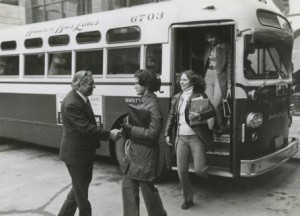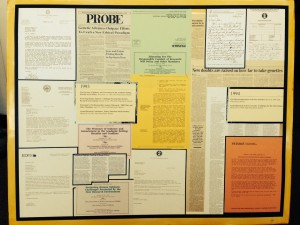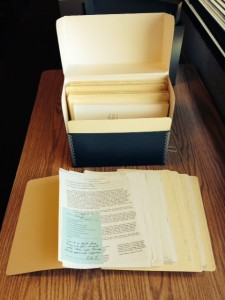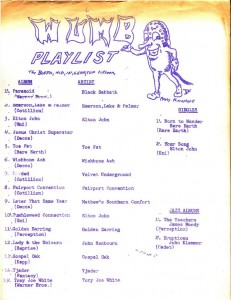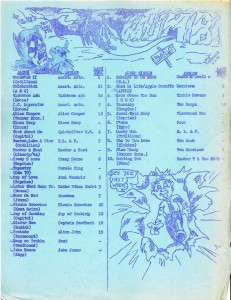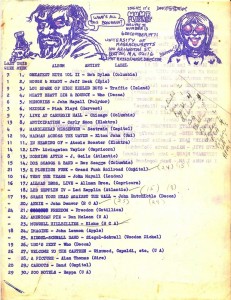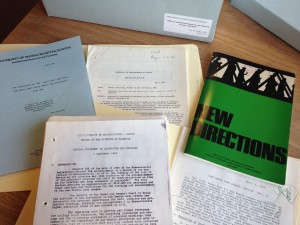 UMass Boston has come a long way since first opening its doors to students in 1965 — something we were thrilled to see highlighted in a recent Boston Globe article about the opening of the Integrated Sciences Complex.
UMass Boston has come a long way since first opening its doors to students in 1965 — something we were thrilled to see highlighted in a recent Boston Globe article about the opening of the Integrated Sciences Complex.
But there’s so much more to the story of UMass Boston. To that end, University Archives & Special Collections in the Joseph P. Healey Library is pleased to announce that the records of the Office of Institutional Research and Planning (1964-2012) are now open for research. The bulk of this collection contains long-range plans and five-year plans from 1964 to 1989 and enrollment reports from 1982 to 2000. Formats and document types range from photocopies and reports to correspondence and memoranda.
Though spanning only one linear foot, the contents of this collection document the founding objectives and activities of the university and are of particular significance as we look back on fifty years of UMass Boston. One highlight within the records includes the “Original UMB Plan 1964” from September 1964, which was prepared by the Office of the Director of Planning. The plan indicates the need to establish a new Boston-area campus to “meet the educational needs of the metropolitan area for the next fifty to sixty years” and “accommodate 10,000 to 20,000 college students within a decade or two.” This document outlines proposed curricula, evaluation of enrollment projection, a list of site locations for the new university, and space requirements for faculty and students. The plan also includes minutes of various committees and subcommittees. The original plan was for the university to be open for 1,000 students by September of 1965. The records within the folder entitled “Who Are Our Students? 2002-2012” indicate that by fall 2012, 15,874 students were enrolled, an amazing mark of progress for the university!
If you have any questions or if you would like to schedule a time to explore this or any of our collections, email library.archives@umb.edu or call 617-287-5469.
View the finding aid for this collection here.
University Archives & Special Collections in the Joseph P. Healey Library at UMass Boston collects materials related to the university’s history, as well as materials that reflect the institution’s urban mission and strong support of community service, notably in collections of records of urban planning, social welfare, social action, alternative movements, community organizations, and local history related to neighboring communities.
University Archives & Special Collections welcomes inquiries from individuals, organizations, and businesses interested in donating materials of an archival nature that that fit within our collecting policy. These include manuscripts, documents, organizational archives, collections of photographs, unique publications, and audio and video media. For more information about donating to University Archives & Special Collections, click here or email library.archives@umb.edu.
